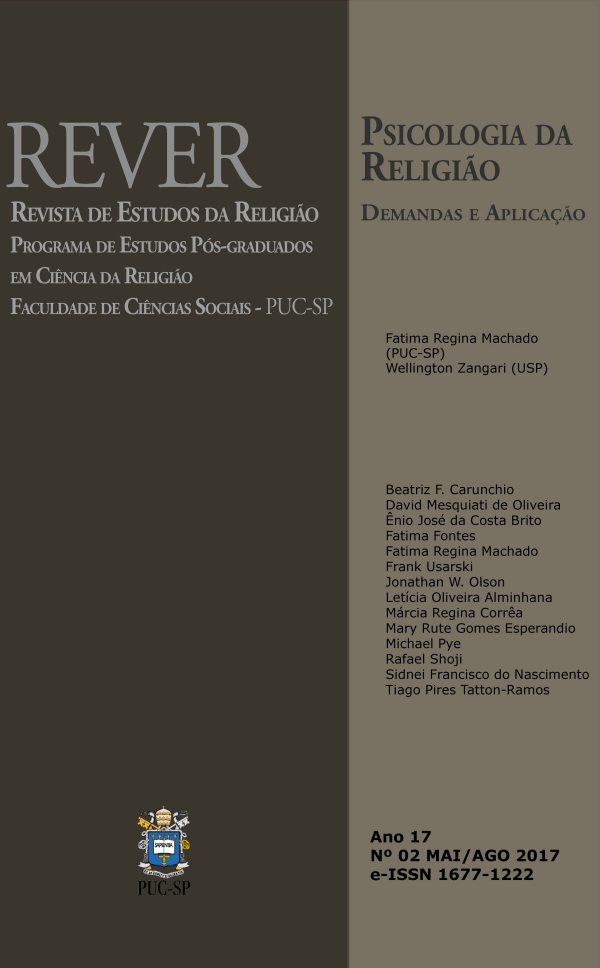Religiosidade e prática psicoterapêutica clínica: contribuições à Psicologia da Religião
DOI:
https://doi.org/10.23925/1677-1222.2017vol17i2a3Palavras-chave:
Religiosidade, Prática Psicoterapêutica, Psicologia da Religião, Terapia Sociocomunitária, Crenças ReligiosasResumo
Crenças e práticas espirituais/religiosas compõem uma parte importante da cultura, bem como dos princípios usados para formar julgamentos e processar informações. Vários estudos indicam que tais sistemas de crenças também são importantes para a adesão à psicoterapia e obtenção, nela, de melhores resultados. Este artigo reflete sobre a prática clínica psicoterápica e as mudanças observadas no padrão de religiosidade dos envolvidos em tais práticas. Discute-se a relação entre a participação em uma psicoterapia de grupo desenvolvida pela autora (a Terapia Sociocomunitária) e as mudanças observadas nos padrões religiosos dos participantes. É feito um contraponto com as psicoterapias em geral e as práticas psiquiátricas que têm problemas persistentes para aceitar e integrar a dimensão religiosa e espiritual. Algumas recomendações propostas pela American Psychiatric Association (Associação Psiquiátrica Americana), assim como pelo Conselho Regional de Psicologia de São Paulo, para tratar dessas dificuldades, são apontadas. Os cientistas da religião têm muito a contribuir com profissionais da área da saúde que, via de regra, não têm preparo para lidar com a dimensão religiosa humana.
Downloads
Publicado
Como Citar
Edição
Seção
Licença
Autores que publicam nesta revista concordam com os seguintes termos:
- Autores mantém os direitos autorais e concedem à revista o direito de primeira publicação, com o trabalho simultaneamente licenciado sob a Licença Attribution-NonCommercial 4.0 International, que permite o compartilhamento do trabalho com reconhecimento da autoria e publicação inicial nesta revista.
- Autores têm autorização para assumir contratos adicionais separadamente, para distribuição não exclusiva da versão do trabalho publicada nesta revista (ex.: publicar em repositório institucional ou como capítulo de livro), com reconhecimento de autoria e publicação inicial nesta revista.


